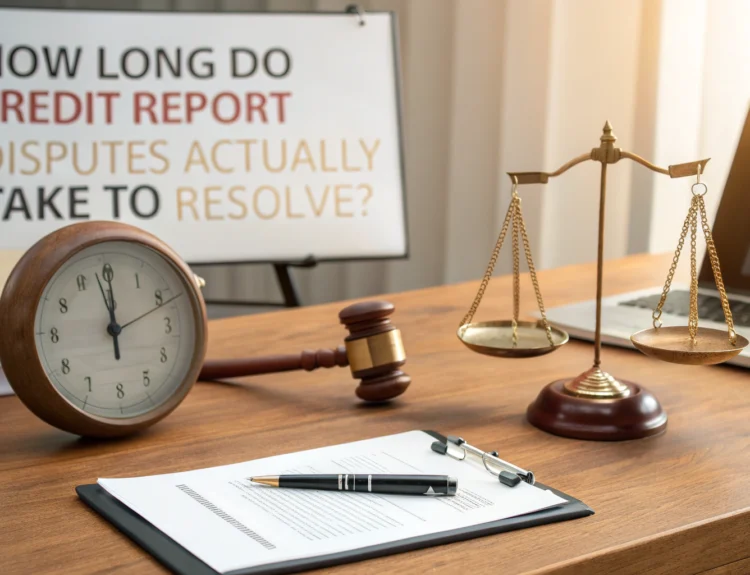Contents
Understanding Military Verification
In the intricate world of legal proceedings, one aspect that often garners significant attention is the verification of an individual’s military status. This process, known as military verification, serves as a crucial safeguard, ensuring that the rights and protections afforded to active-duty servicemembers are upheld with utmost diligence.
As legal professionals, we are entrusted with the responsibility of navigating complex scenarios while upholding the principles of justice and fairness. Military verification emerges as a pivotal component in this pursuit, enabling us to make informed decisions and provide tailored legal counsel that aligns with the unique circumstances of our clients who serve or have served in the armed forces.
Through this article, we aim to illuminate the importance of military verification, its influence on legal situations, the challenges encountered, and solutions like a military verification service that streamlines this critical process. By fostering a deeper understanding of this subject, we can better equip ourselves to navigate the intricate legal landscape and ensure that the rights of servicemembers are safeguarded at every turn.
The Importance of Verifying Military Status
Verifying an individual’s military status is not merely a formality; it carries profound implications that can shape the trajectory of legal proceedings. Active-duty servicemembers are afforded specific protections under the Servicemembers Civil Relief Act (SCRA), a federal law designed to alleviate the potential burdens and disruptions that military service may impose on their civil affairs.
The SCRA encompasses a wide range of legal areas, including:
- Rental agreements and security deposits
- Eviction proceedings
- Mortgage interest rates and foreclosure proceedings
- Credit card interest rates
- Income tax filing and payment deadlines
- Termination of lease agreements
- Automobile lease termination
- Civil judicial proceedings
By accurately verifying a client’s military status, we can ensure that they receive the appropriate legal protections and accommodations outlined by the SCRA. This not only upholds their rights but also fosters a sense of fairness and equity within the judicial system.
How the Servicemembers Civil Relief Act (SCRA) Influences Legal Situations
The Servicemembers Civil Relief Act (SCRA) is a cornerstone piece of legislation that profoundly impacts legal situations involving active-duty servicemembers. This act serves as a shield, safeguarding the rights and interests of those who answer the call to serve our nation.
One of the primary provisions of the SCRA is the protection against default judgments. If a servicemember is unable to appear in court or respond to legal proceedings due to their military duties, the SCRA prohibits the entry of a default judgment without first appointing an attorney to represent their interests. This safeguard ensures that servicemembers are not unduly penalized for their commitment to our nation’s defense.
Furthermore, the SCRA provides relief from certain financial obligations, such as reducing interest rates on pre-service loans and mortgages to a maximum of 6% per annum during active duty and for one year thereafter. This provision aims to alleviate the financial burdens faced by servicemembers, allowing them to focus on their duties without undue financial strain.
The act also offers protections against eviction from rented or leased premises for non-payment of rent during periods of active duty. Additionally, it grants servicemembers the right to terminate certain residential and automobile leases without incurring penalties, providing flexibility and reducing financial commitments during deployments or permanent change of station orders.
By understanding the nuances of the SCRA and its implications, legal professionals can navigate complex situations involving servicemembers with greater precision and ensure that their rights are upheld at every juncture.
The Process of Military Verification
The process of military verification is a multifaceted endeavor that requires diligence, attention to detail, and adherence to established protocols. It involves obtaining accurate and up-to-date information regarding an individual’s military status, branch of service, and other relevant details.
One of the primary methods of verifying military status is through the Defense Manpower Data Center (DMDC), a centralized database maintained by the Department of Defense. This database contains records of active-duty personnel, as well as members of the National Guard and Reserve components.
To initiate the verification process, legal professionals can submit a request to the DMDC, providing specific details about the individual in question. The DMDC then cross-references the provided information with their records and responds with a confirmation or denial of the individual’s military status.
In addition to the DMDC, there are various other resources and methods that can be employed for military verification, such as contacting the individual’s commanding officer or unit, or consulting publicly available records and databases.
It is crucial to note that the process of military verification is not a one-time event; it must be conducted at multiple stages throughout legal proceedings. An individual’s military status can change over time, and it is imperative to ensure that the most up-to-date information is obtained to make informed decisions and provide appropriate legal counsel.
Key Legal Scenarios Where Military Verification is Essential
Military verification plays a pivotal role in numerous legal scenarios, ensuring that the rights and protections afforded to servicemembers are upheld and respected. Here are some key situations where accurate military verification is essential:
- Civil Litigation: In civil lawsuits involving active-duty servicemembers, military verification is crucial to determine if the SCRA’s protections against default judgments or stays of proceedings apply. This ensures that servicemembers are not unfairly disadvantaged due to their military obligations.
- Landlord-Tenant Disputes: When dealing with eviction proceedings or lease terminations involving servicemembers, military verification is necessary to ascertain if the SCRA’s provisions regarding rental agreements and eviction protections are applicable.
- Debt Collection and Foreclosure Proceedings: In cases involving debt collection or foreclosure actions against servicemembers, verifying their military status is essential to ensure compliance with the SCRA’s provisions regarding interest rate caps, foreclosure protections, and other financial safeguards.
- Family Law Matters: In divorce, child custody, and other family law cases involving servicemembers, military verification is crucial to determine if the SCRA’s provisions regarding default judgments, stays of proceedings, or other protections apply.
- Employment and Labor Law Issues: When addressing employment-related disputes or claims involving servicemembers, military verification ensures that their rights under the Uniformed Services Employment and Reemployment Rights Act (USERRA) and other applicable laws are upheld.
- Criminal Proceedings: In criminal cases where the defendant is an active-duty servicemember, military verification may be necessary to determine if the SCRA’s provisions regarding default judgments, stays of proceedings, or other protections are applicable.
These scenarios underscore the importance of accurate military verification in upholding the rights and protections afforded to servicemembers across various legal domains.
Challenges in Verifying Servicemembers’ Status
While the process of military verification is crucial, it is not without its challenges. Legal professionals may encounter various obstacles that can hinder the timely and accurate verification of a servicemember’s status. Some of these challenges include:
- Incomplete or Inaccurate Information: Obtaining accurate and up-to-date information about an individual’s military status can be challenging, especially if the provided details are incomplete or contain errors. This can lead to delays or incorrect verifications.
- Delayed Responses: In some cases, responses from the Defense Manpower Data Center (DMDC) or other verification sources may be delayed, causing potential disruptions in legal proceedings or decision-making processes.
- Changes in Military Status: An individual’s military status can change over time, requiring ongoing verification efforts throughout the legal process. Failure to account for such changes can lead to incorrect assumptions and potential violations of servicemembers’ rights.
- Complex Military Structures: The intricate organizational structures and terminology used within the military can pose challenges for legal professionals who may not be familiar with the nuances of military service and its various components.
- Limited Access to Resources: Depending on the jurisdiction or specific case circumstances, legal professionals may encounter limitations in accessing certain military verification resources or databases, further complicating the verification process.
- Time Constraints: Legal proceedings often operate under strict deadlines and time constraints, which can make it challenging to conduct thorough and accurate military verifications within the allotted timeframes.
Overcoming these challenges requires a combination of diligence, expertise, and access to reliable verification resources and tools.
Solutions: Utilizing a Military Verification Service
Recognizing the complexities and challenges associated with military verification, many legal professionals have turned to specialized military verification services. These services offer streamlined and efficient solutions, leveraging their expertise and access to comprehensive databases to provide accurate and timely verifications.
By partnering with a reputable military verification service, legal professionals can benefit from the following advantages:
- Comprehensive Database Access: Military verification services maintain access to extensive databases, including the Defense Manpower Data Center (DMDC) and other authoritative sources, ensuring comprehensive and up-to-date information.
- Streamlined Verification Process: These services have established efficient processes and protocols for conducting military verifications, minimizing delays and ensuring timely responses.
- Expertise and Experience: Military verification services employ professionals with in-depth knowledge of military structures, terminology, and regulations, enabling them to navigate complex scenarios with ease.
- Compliance and Accuracy: By leveraging their expertise and resources, military verification services can provide highly accurate verifications, minimizing the risk of errors or violations of servicemembers’ rights.
- Time and Cost Efficiency: Outsourcing military verification to specialized services can save legal professionals valuable time and resources, allowing them to focus on other critical aspects of their cases.
- Ongoing Support and Updates: Many military verification services offer ongoing support and updates, ensuring that legal professionals have access to the latest information and resources throughout the legal process.
By utilizing a reputable military verification service, legal professionals can streamline the verification process, mitigate risks, and ensure compliance with the Servicemembers Civil Relief Act (SCRA) and other applicable laws and regulations.
Benefits of Accurate Military Verification for Legal Outcomes
Accurate military verification plays a pivotal role in shaping favorable legal outcomes for both servicemembers and legal professionals. By ensuring compliance with the Servicemembers Civil Relief Act (SCRA) and other relevant regulations, legal professionals can safeguard the rights and interests of their clients while upholding the principles of fairness and justice. Here are some of the key benefits of accurate military verification:
- Avoiding Default Judgments and Penalties: By verifying a servicemember’s status, legal professionals can prevent the entry of default judgments or the imposition of penalties that may arise from their inability to attend legal proceedings due to military obligations.
- Protecting Financial Interests: Accurate military verification allows legal professionals to ensure that servicemembers receive the appropriate financial protections, such as interest rate caps, foreclosure protections, and relief from certain financial obligations, as outlined in the SCRA.
- Facilitating Fair Legal Proceedings: By confirming a client’s military status, legal professionals can ensure that the appropriate accommodations and protections are applied, fostering a fair and equitable legal process for servicemembers.
- Mitigating Legal Risks and Liabilities: Failure to properly verify a servicemember’s status can expose legal professionals and their clients to potential legal risks, such as violations of the SCRA or other applicable laws. Accurate verification helps mitigate these risks and protect against potential liabilities.
- Enhancing Credibility and Trust: By demonstrating a commitment to upholding the rights and protections afforded to servicemembers, legal professionals can enhance their credibility and build trust with their clients, as well as with the broader legal community.
- Promoting Ethical and Professional Conduct: Accurate military verification aligns with the ethical and professional standards expected of legal professionals, reinforcing their commitment to upholding the principles of justice and fairness.
By prioritizing accurate military verification, legal professionals can navigate complex legal scenarios with confidence, ensuring that the rights and interests of servicemembers are protected, and favorable outcomes are achieved.
Steps to Take for Effective Military Verification
To ensure effective military verification and maximize the benefits it offers, legal professionals should follow a structured approach. Here are the key steps to take for successful military verification:
- Gather Accurate Information: Begin by collecting accurate and comprehensive information about the individual whose military status needs to be verified. This includes full name, date of birth, Social Security number, and any other relevant details.
- Determine Appropriate Verification Sources: Identify the most reliable and authoritative sources for military verification, such as the Defense Manpower Data Center (DMDC), military personnel records, or specialized verification services.
- Initiate the Verification Process: Submit a formal request for verification to the chosen source(s), providing all necessary information and adhering to any specific protocols or requirements.
- Review and Analyze Responses: Carefully review and analyze the responses received from the verification sources, ensuring that the information provided is accurate, up-to-date, and addresses all relevant aspects of the individual’s military status.
- Document and Maintain Records: Maintain detailed records of the verification process, including the sources consulted, the information provided, and the responses received. This documentation can be crucial in demonstrating compliance with legal requirements and supporting future legal actions or decisions.
- Seek Clarification or Additional Verification: If the initial verification results are incomplete, ambiguous, or raise additional questions, promptly seek clarification or pursue additional verification channels to ensure comprehensive and accurate information.
- Regularly Update Verifications: Recognize that an individual’s military status can change over time. Establish protocols for regularly updating verifications throughout the legal process to ensure that decisions and actions are based on the most current information.
- Consult Legal Experts: When faced with complex or unique scenarios related to military verification, consult with legal experts who specialize in the Servicemembers Civil Relief Act (SCRA) and other relevant laws and regulations.
By following these steps and maintaining a diligent approach, legal professionals can effectively navigate the military verification process, ensuring that the rights and protections afforded to servicemembers are upheld, and legal outcomes are fair and equitable.
Conclusion: The Indispensable Role of Military Verification in Upholding Justice
As we navigate the intricate landscape of legal proceedings, the role of military verification emerges as an indispensable component in upholding justice and safeguarding the rights of those who serve our nation. By accurately verifying an individual’s military status, we ensure that the protections and accommodations outlined in the Servicemembers Civil Relief Act (SCRA) are applied with precision and fairness.
Throughout this article, we have explored the importance of military verification, its influence on legal situations, the challenges encountered, and the solutions available to streamline this critical process. We have delved into key legal scenarios where military verification is essential, highlighting its pivotal role in civil litigation, landlord-tenant disputes, debt collection, family law matters, employment issues, and criminal proceedings.
Furthermore, we have examined the benefits of accurate military verification, including avoiding default judgments and penalties, protecting financial interests, facilitating fair legal proceedings, mitigating legal risks and liabilities, enhancing credibility and trust, and promoting ethical and professional conduct.
As legal professionals, it is our duty to uphold the principles of justice and ensure that the sacrifices of our servicemembers are honored and their rights are protected. By embracing the importance of military verification and implementing effective strategies, we can navigate complex legal scenarios with confidence, ensuring favorable outcomes for our clients while upholding the values that underpin our legal system.To ensure accurate and efficient military verification, consider partnering with a reputable military verification service.
In conclusion, the role of military verification in key legal scenarios cannot be overstated. It serves as a crucial safeguard, ensuring that the rights and protections afforded to our nation’s servicemembers are upheld with the utmost diligence. By embracing this responsibility and implementing effective verification strategies, we can navigate the legal landscape with confidence, upholding the principles of justice and fairness for all.




